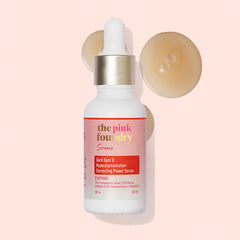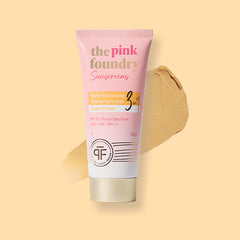What is Gluconolactone?
Gluconolactone in skincare is a compound known for its unique chemical structure. It is sourced from natural origins and serves various roles in skincare formulations. This ingredient is commonly used across different skincare products due to its versatility and compatibility. Its specific functions contribute to the overall effectiveness of skincare formulations, making it a valued component in the industry. Gluconolactone generally maintains a favorable safety profile, but individuals with sensitive skin should be cautious.

Meaning of Gluconolactone
Gluconolactone, a polyhydroxy acid (PHA), holds significance in the realm of skincare due to its distinct chemical composition. As a member of the PHA family, it is recognized for its gentle exfoliating properties, making it a favorable choice for skincare formulations, particularly for individuals with sensitive skin. This compound facilitates the removal of dead skin cells without causing irritation. Emphasizing a dual role, Gluconolactone also serves as a humectant, attracting and retaining moisture, contributing to enhanced skin hydration. While generally well-tolerated, cautious consideration of potential sensitivity issues is advisable. Conducting a patch test before incorporating Gluconolactone-containing products into regular skincare routines is a prudent approach.
Benefits of Gluconolactone
Gluconolactone, a noteworthy polyhydroxy acid (PHA) in skincare, brings about several benefits for the skin.
- Gentle Exfoliation: Gluconolactone offers a mild exfoliation, aiding in the removal of dead skin cells without causing irritation. This makes it particularly suitable for individuals with sensitive skin, promoting a smoother complexion.
- Hydration Enhancement: Acting as a humectant, Gluconolactone attracts and retains moisture in the skin. This contributes to improved hydration, helping to maintain a supple and moisturized skin texture.
- Antioxidant Properties: The compound possesses antioxidant capabilities, assisting in the neutralization of free radicals. This helps protect the skin from oxidative stress, potentially slowing down premature aging and promoting a healthier complexion.
- Skin Smoothing: Regular use of Gluconolactone can contribute to a more even skin tone and texture, fostering a smoother appearance and reducing the visibility of fine lines and wrinkles.
- Compatibility with Sensitive Skin: Due to its gentle nature, Gluconolactone is generally well-tolerated by various skin types, including sensitive skin, providing the benefits of exfoliation without causing undue irritation.
Related Blogs

Skin Minimalism: The Simple Skincare Routine You Need
TABLE OF CONTENTS What is Skin Minimalism? Benefits of Skin Minimalism Best Minimal Skincare Routine Skin...
Continue Reading
Ethyl Ascorbic Acid vs. L Ascorbic Acid: Which Vitamin C Form is Best for Your Skin?
TABLE OF CONTENTS Ethyl Ascorbic Acid vs L Ascorbic Acid: Key Differences Benefits of Each Form of Ascorbic Acid ...
Continue Reading
Best Anti-Aging Ingredients You Should Include in Your Skincare Routine
TABLE OF CONTENTS Best Anti-Ageing Ingredients for Skin How These Ingredients Work How to Use Anti-Ageing Ingredi...
Continue Reading
How Often to Use Salicylic Acid: Finding the Right Frequency for Your Skin
TABLE OF CONTENTS How Often Should I Use Salicylic Acid Serum? How Often to Use Salicylic Acid for Specific Skin Types ...
Continue Reading















